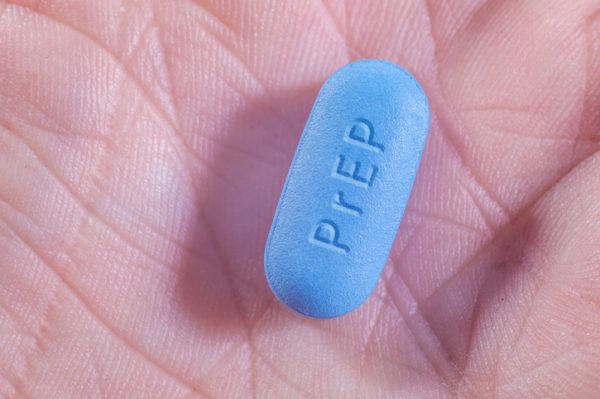
An HIV-focused company jointly owned by GlaxoSmithKline, Pfizer and Shionogi is stopping its Phase IIb/III clinical trial of an injected pre-exposure prophylaxis drug early after an interim analysis showed it to be superior to the current standard of care used in PrEP.
ViiV Healthcare – of which the respective London-, New York- and Osaka, Japan-based companies are majority shareholders – said that the HIV Prevention Trials Network 083 study of cabotegravir found the drug to be 69% more effective in preventing HIV infection among subjects than Foster City, California-based Gilead Sciences’ Truvada (emtricitabine, tenofovir disoproxil fumarate). Pending final analysis, the study achieved its primary endpoint of non-inferiority between cabotegravir and Truvada, with a hint of superiority for the former.

Behavioral Health, Interoperability and eConsent: Meeting the Demands of CMS Final Rule Compliance
In a webinar on April 16 at 1pm ET, Aneesh Chopra will moderate a discussion with executives from DocuSign, Velatura, and behavioral health providers on eConsent, health information exchange and compliance with the CMS Final Rule on interoperability.
“These study results demonstrate that long-acting injectable cabotegravir dosed every two months can successfully reduce HIV acquisition in at-risk MSM and transgender women,” ViiV head of research and development Kimberly Smith said in a statement. “We are thrilled with the results not only because of the high efficacy of cabotegravir but also because we have demonstrated high efficacy in a study that adequately represents some of the populations being most disproportionately impacted by HIV – black MSM in the U.S., young MSM globally and transgender women.”
According to the interim analysis by the trial’s data safety monitoring board, 50 subjects contracted HIV, including 12 in the cabotegravir arm and 38 in the Truvada arm, translating into an HIV incidence rate of 0.38% for those receiving the former and 1.21% among those receiving the latter drug. The company that translated into a 69% greater degree of efficacy for the ViiV drug, despite subjects on Truvada showing high levels of adherence. Eighty percent of those in the cabotegravir group reported pain or tenderness at the injection site, and 2% of participants discontinued due to injection site reactions. In the Truvada arm, whose participants received placebo injections, 31% reported injection site reactions.
The study, which has a target enrollment of 5,000, enrolled 4,600 men and transgender women who have sex with men at 40 sites in the U.S., Argentina, Brazil, Peru, South Africa, Thailand and Vietnam, with half of the U.S. participants identifying as black or African-American. The drug is a long-acting injectable meant to be given every eight weeks, compared with daily dosing for Truvada. Another study, HPTN 084, is being conducted among 3,200 women in several African countries. The DSMB performed an analysis of HPTN 084, with started more than a year after HPTN 083, and recommended that it continue. The National Institute of Allergy and Infectious Diseases is sponsoring both.
Both studies are blinded and placebo-controlled. One arm receives an oral formulation of cabotegravir with a placebo of Truvada, followed by injected cabotegravir and placebo Truvada and then Truvada alone; the other receives Truvada and oral cabotegravir placebo, followed by Truvada and injected cabotegravir placebo and then Truvada alone.

A Deep-dive Into Specialty Pharma
A specialty drug is a class of prescription medications used to treat complex, chronic or rare medical conditions. Although this classification was originally intended to define the treatment of rare, also termed “orphan” diseases, affecting fewer than 200,000 people in the US, more recently, specialty drugs have emerged as the cornerstone of treatment for chronic and complex diseases such as cancer, autoimmune conditions, diabetes, hepatitis C, and HIV/AIDS.
Truvada is anticipated to lose its patent protection and go generic in the fall. In October 2019, the Food and Drug Administration approved another Gilead drug for PrEP, Descovy (emtricitabine, tenofovir alafenamide), which is similar to Truvada but has an improved profile with respect to bone and kidney toxicity.
Photo: MarcBruxelle, Getty Images












